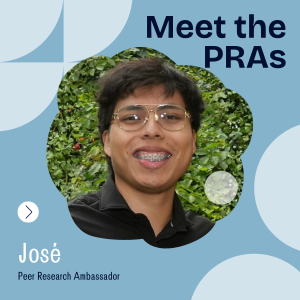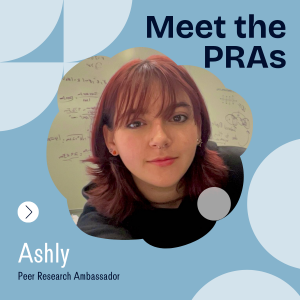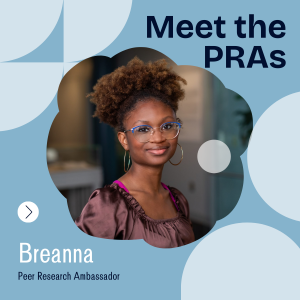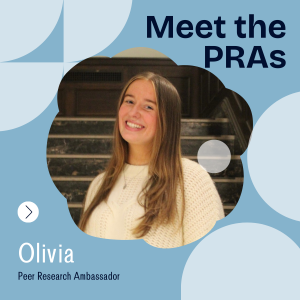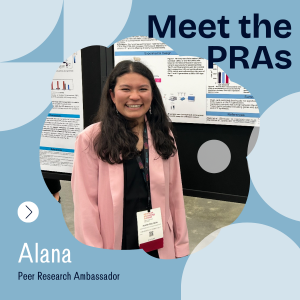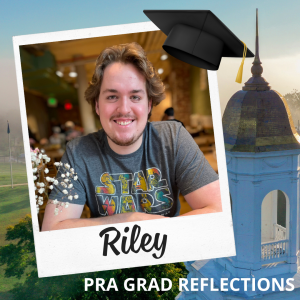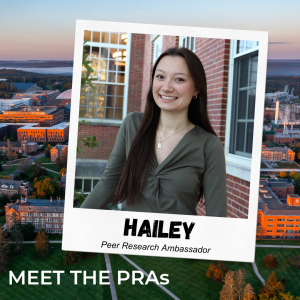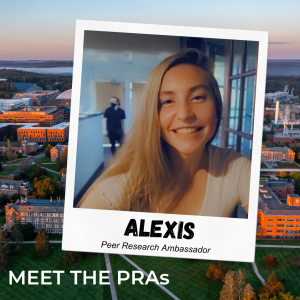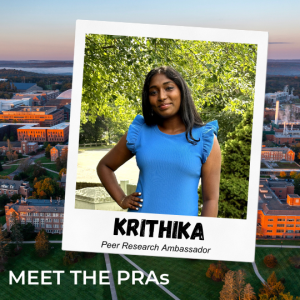Meet Hailey DeWalt ’26, an OUR Peer Research Ambassador majoring in Molecular and Cell Biology and Healthcare Management and Insurance Studies
What is the focus of your research/creative activity?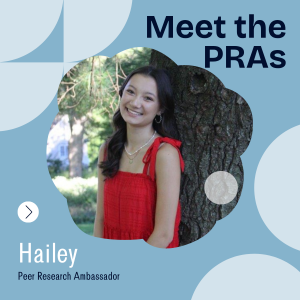
I currently work in two research labs on campus! In one, I study the microbiome of the Hawaiian bobtail squid and its potential for antibiotic discovery and development. In the other, through the psychology department, I explore how religion and spirituality intersect with health and human flourishing. While these projects may seem unrelated, both reflect passion topics for me and allow me to think about healthcare more deeply—from scientific discovery to the human experiences and inequities that shape it.
Why did you get involved in research/creative activity?
I actually stumbled into research a bit by accident—I knew I was curious about it, but I didn’t realize just how much it would shape my college experience. At UConn, I quickly learned that research is incredibly multifaceted, with opportunities that extend far beyond the hard sciences. What excites me most is that I can shape my projects around my own interests and use research as a way to dig deeper into questions I care about. It’s not just about learning things are how they are, but asking why and exploring possibilities.
What advice would you give to aspiring student researchers?
Don’t limit yourself! If you have a “crazy” idea or a random topic that sparks your curiosity, run with it. Chances are, there’s already a lab at UConn exploring something similar (or exactly that!)—and if not, that just gives you the chance to create something of your own. Research should be something you genuinely enjoy and feel excited to pursue, not just something you check off a list. Take the time to reflect on what lights a spark inside of you and give it a shot—you never know, it might grow into something greater than you ever imagined.
Describe the impact your research experience/creative activity has had on you.
Research has been one of the most meaningful parts of time at UConn. I never imagined becoming so immersed and passionate about it—especially across such different fields—but once I got started, I just couldn’t stop. I’ve loved being able to keep exploring, turning bold ideas into projects, and challenging myself to create rather than just accept. Along the way, research has given me not only a richer education, but also a creative outlet, a space for advocacy, and the chance to meet incredible people who have shaped my journey.
What are your plans after graduation? How has involvement in research/creative activity influenced your plans and/or prepared you for the future?
After graduation, I plan to attend medical school. Research has been instrumental in preparing me for this path by teaching me how to think more critically, approach problems with persistence, and adapt when things don’t go as planned. It has also shown me how science and medicine can address broader social issues, and how advocacy can transform injustice into opportunities for change. These lessons will continue to guide me as I pursue a future career in medicine and work toward making a meaningful difference in patient care.
